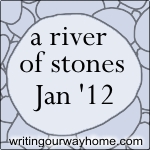Lake
举人

注册时间: 2007-01-09
帖子: 1286
Lake北美枫文集 |
 发表于: 2010-11-25 09:22:47 发表主题: Today is Thanksgiving Day 发表于: 2010-11-25 09:22:47 发表主题: Today is Thanksgiving Day |
 |
|
Today is Thanksgiving Day.
Feast days giving thanks for a good harvest have been celebrated for thousands of years. But when we talk about "the first Thanksgiving," we are referring to a fall feast day in 1621 in Plymouth, Massachusetts, when about 50 recently arrived colonists shared in three days of feasting with 90 Wampanoag Indians. The pilgrims had arrived almost a year earlier, but after a long journey and no resources for surviving in this new place, about half of them died during the first winter. The wheat they had brought didn't sprout in the rocky soil, and they had no idea which native plants were edible and which were poisonous.
Luckily for them, there were two Indians living nearby who spoke English. One of them, Squanto, had been enslaved by a British slave trader, but was also close friends with an English explorer, John Weymouth. The other, Samoset, was a leader from a tribe in what is now Maine, and had learned English from British fishermen there. The colonists were quite surprised when Samoset walked into their camp and said, "Welcome, Englishmen!" in English. He introduced them to Squanto, and to Massasoit, the chief of the Wampanoag.
Samoset went back to his tribe, but Squanto felt sorry for the sick and confused colonists, and since he lived nearby anyway, he decided to stay and teach them how to survive in this new place. He taught them to plant corn, to fish and dig clams, to tap maple trees, to use wild plants as medicine, and to build shelters in the Wampanoag style. By that fall, they had successfully harvested their first crops, and they had built seven houses, a common space, and three shelters to store their excess food. So they had plenty of reasons to celebrate.
The colonists decided to set aside a few days to eat and give thanks for their harvest. They had celebrated Thanksgiving in the past, but as a purely religious holiday, full of praying, not celebration. They invited Squanto and Massasoit and their families to come, expecting a few people. But Squanto and Massasoit brought 90 people with them to join the 52 colonists. The feasting lasted for three days, and they probably ate venison, duck, lobsters, mussels, chestnuts, parsnips, eel, corn, dried beans, plums, gooseberries, and squash. There were no potatoes, sweet potatoes, cranberry sauce, or pumpkin pies, and probably not even turkey.
From The Poetry Foundation
_________________
the trouble with poetry is that it encourages the writing of more poetry -- Billy Collins |
|